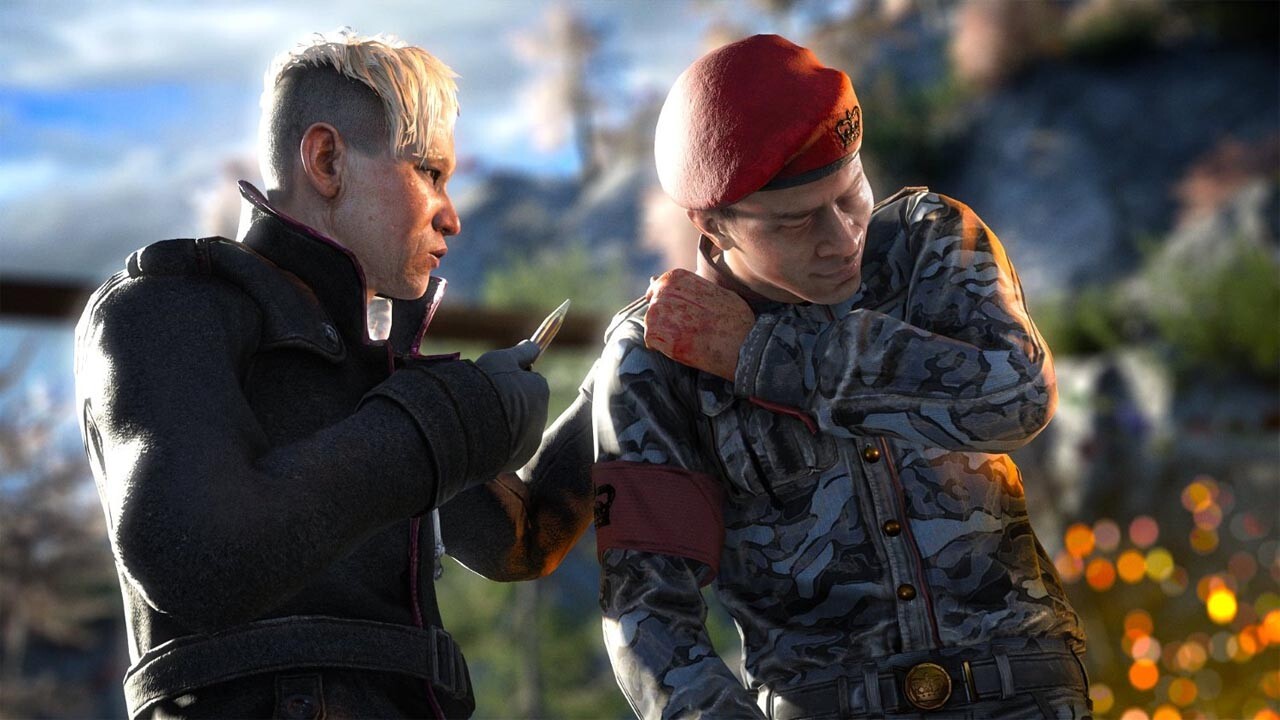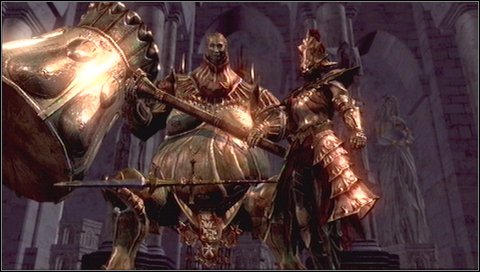I've been using Follow up Fridays to look at video games that pushed my thoughts in interesting ways. Last week I spoke about Far Cry 3. This week, I want to talk about its follow up: Far Cry 4.

Where Far Cry 3 wanted to deconstruct the video game and how it
conflates violence and heroism. Far Cry 4 wants to talk about violence
and solving problems. In Far Cry 4 you play Ajay Ghale: an expatriate from a fictional war torn
nation of Kyrat in the Himalayas. The nation is ruled by a Triad Mob
boss turned dictator who backed a royalist faction and then betrayed
them. The nation is locked in a civil war between the Dictator's forces
and rebels, who are themselves divided between a reformist faction bent
on modernizing the nation and traditionalist faction bent on bringing
back the monarchy and traditional state religion. One faction mirrors
the Maoist rebels of Nepal, the other mirrors the people of occupied Tibet.
The game starts with a pretty clean dichotomy between the good rebels
and the bad Dictator: one Pagan Min. But things break down as Ajay
finds himself (as son of the rebellions founders) acting as kingmaker
and swing vote for the two leaders of the rebellion. Regardless who Ajay
supports, the decisions to be made will be flawed and rarely will a
clean cut good answer present itself. As the endgame approaches, the
player will (or at least I did) start to get a sense of inevitability,
and the increasing sense that this isn't going to turn out well. Every
character you have fought beside ends up compromised in some way. And
every villain you fought against is given a sympathetic perspective to
unbalance the easy (previously held) view of them as a villain. An early
example will serve, Paul Harmon is pagan Min's chief spy and torture
technician. In the very tutorial level of the game, he tortures the man
who helped you get into the country while talking idly about self help
books. The game teases you with his devotion to his daughter, but
despite how ubiquitous his daughter's letter our in his strong hold and
how much Harmon talks about his daughter, its doesn't really strike home
until you capture him. After you capture Harmon, he has a bag stuffed
on his head and he is led away, implicitly to be tortured for
information- so much for good guys and bad guys. And this is happening,
his phone begins to ring and he recognizes the ring tone as meaning his
daughter is calling. The player will have seen him stop mid torture to
take his daughter's call at least twice previously. But here, unable to
answer the call, Harmon begins to panic. He begs Ajay to help him answer
the phone. He starts frantically telling the phone that "Daddy's
coming!"
I didn't like Paul Harmon, but that scene gave me pause. This is
repeated for Pagan's other lieutenant Noor, who has an even more
sympathetic back story, but who has arguably done more damage to Kyrat
through he blood sports in Shanath Arena, soaking the local culture in a
glorified and sanctified violence. Even Pagan's right hand woman Yuma,
is shown adrift and lost after losing faith in Pagan, a man she
indicated she would have previously followed anywhere. And Pagan himself
is nothing but polite to Ajay, and offers every chance for
reconciliation. The player even has several chances to let Pagan live.
The game has multiple spots that could be considered an ending, and none
of them resolve anything, instead creating a new normal that is
arguably just as bad as the old normal.
The more things change the more they stay the same. Or to quote a
game that tried to make the same impression and failed, "War. Ware never
changes."

There is no win state for the player or for Ajay. The game doesn't
kill Ajay for his choices, or threaten to delete his save fail as the
previous game did. Instead, Far Cry 4 would rather force you to live
with yourself and the consequences of the choices you made. Side with
the reformist faction? They've lost so many troops that they need to
start conscripting children. Side with the traditionalists, and the
institute a purge of reformist faction and institute a child as a puppet
theocratic head of state. Kill Pagan? He never find out the secret your
mother sent you back to Kyrat to discover. Let Pagan live? A violent
psychopathic murderer is free to do as he likes. The game even gives you
the chance to free the rebel leader you don't side with (and the chance
to find and kill them later if you change your mind) with no impact on
the outcome for Kyrat. Once you see how far the faction you have backed
will go, you have a chance to kill the leader of the faction which you
did back, with no impact on the outcome for Kyrat.
War is hell, and everyone suffers. And there are no heroes. Welcome Home.


